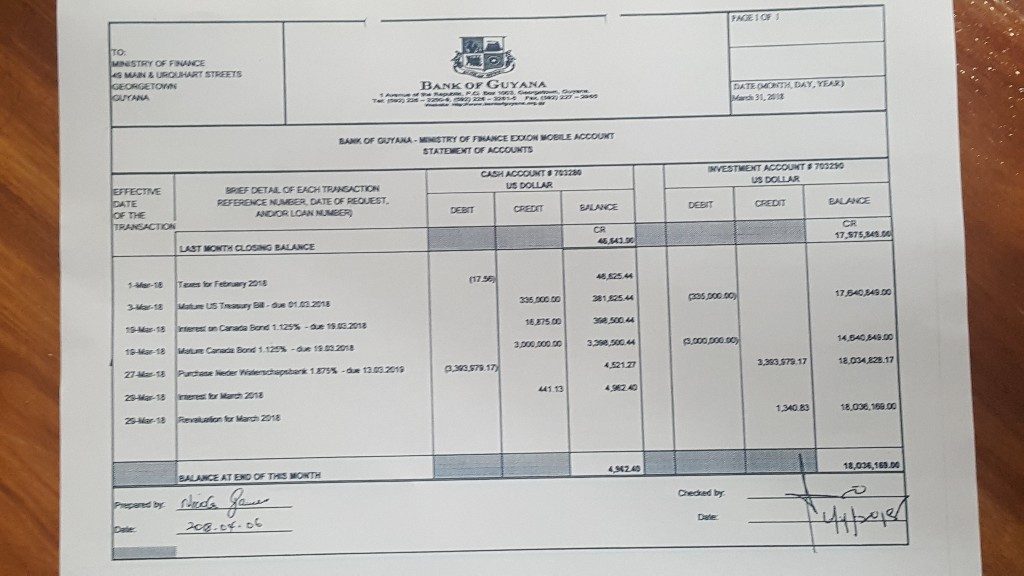A recent Globovision article states that Venezuelan politicians are of the opinion that ExxonMobil is behind all the heavily imposed sanctions on the country by the United States (US).
The Venezuelans said that the evidence is quite clear that Exxon is trying to take revenge after their country managed to win all the arbitration cases that were filed against it.
The World Bank’s International Centre for Settlement of Investment Disputes (ICSID) had overturned Exxon’s US$1.6 B claim for damages in 2017.
Immediately after this ruling, former Chief Executive Officer (CEO) of ExxonMobil, Rex Tillerson, the main player in the lawsuits against Venezuela, was named Foreign Secretary of the US by President Donald trump.
A 2017 Reuters article had raised questions as to how Tillerson would treat his enemy.
In fact, Tillerson was in full support of a few recent sanctions imposed against Venezuela by the Trump administration in an attempt to bend the Socialist Government into subjection.
THE BEGINNING OF THE “FALLOUT” BETWEEN EXXON AND VENEZUELA
Ties between these two parties were first severed in 1976 when the then Venezuelan President Carlos Andres Pérez sought to nationalise the oil industry.
But they soon become friends again in the 1990s when Perez decided to launch the so-called “Apertura Petrolera” (“oil opening”).
His initiative was focused on attracting foreign investment to partner with state owned Oil Company, PDVSA, to develop his country’s Orinoco Belt.
ExxonMobil was granted the opportunity to invest two of the most lucrative blocks in the Orinoco belt, Cerro Negro and La Ceiba.
This time around, ExxonMobil did not waste any time to ensure that a good deal was obtained where it would benefit heavily from its investments.
A contract filled with stability clauses and a frightening provision to force Venezuela to adhere to the sanctity of the contract, was signed.
However, Exxon’s “sweet ride” did not last for a decade. The late Hugo Chavez defeated Perez and became the new leader of Venezuela.
The new president began by updating Venezuela’s 1975 Nationalization Act. This Act granted him the power to establish a new law in 2001 known as the Hydrocarbons Act which included a Sovereignty right rule.
Between the period 2001 and 2006 Chavez led massive campaigns to convince his supporters that they deserve a better life.
He preached that the only way to do so is bring Venezuela’s contract with foreign oil companies in conformity with the country’s laws.
The charismatic leader was able to motivate his supporters that the contract allowed oil companies to cart off the wealth that belongs to the Venezuelan people.
With the support of millions of Venezuelans, Chavez, in 2007 told oil companies that the contract they had with the ex-president Perez was illegal.
He enforced the country’s Nationalization Act of 1975 and the 2001 Hydrogen Carbon Act.
These two Acts would allow PDVSA to become the biggest shareholders in the two blocks that Exxon operated.
With the aid of the Sovereignty right rule Chavez, raised the taxes imposed on the foreign oil companies from 33% to 40%.
ExxonMobil immediately disagreed and continued operations as normal by saying that Venezuela is obligated to adhere to contract sanctity.
This then prompted Chavez to forcefully seize the company’s operations in Cerro Negro and La Ceiba.
Tillerson was the CEO at that time and became enraged. He said that the contract was disregarded and treated as a “proverbial scrap of paper”.
He then moved to initiate three lawsuits claiming more than US$10B in damages.
But Venezuela refused to be beaten into subjection and hired George Kahale as its lawyer. In fact, the lawyer was so confident that he said that Venezuela will not pay a cent in damages.
Venezuela’s defence statement was made public in 2008 by the Venezuelan Embassy in the US.
The statement was captioned, “Fact Sheet: Arbitration between ExxonMobil and Venezuela”, and read, “Venezuela’s intention has been to bring illegal oil projects from the rich Orinoco Oil Belt into its legal framework and thus stop the continued transferring of resources needed for social development from the People of Venezuela to the coffers of large foreign multinational companies”.
“This has been accepted by all oil companies operating in Venezuela, except ExxonMobil”.
Venezuela’s argument was good enough to convince ICSID that law takes precedence over the disputed contract sanctity.
The more than US$10B in damages was reduced significantly in 2014. Venezuela was ordered to pay Exxon only US$1.6B.
This amount was to compensate Exxon because Venezuela had chosen to increase the tax rates, thus breaching the agreement.
But Venezuela did not give up; an appeal was filed on the grounds that the Sovereignty right rule allowed Venezuela the privilege to increase taxes if its citizens demanded.
The evidence produced showed that Chavez had immense support from his supporters in his move to increase Exxon’s taxes.
As a result, the US$1.6B was annulled by the ICSID in 2017.
However, Venezuela has been pounded with sanctions after sanctions which weakened the country’s economy, plunging it into crisis.







 The US$18 million ExxonMobil signing bonus, which was initially deposited in the Bank of Guyana, has been transferred overseas to an interest-bearing account, Finance Minister Winston Jordan said.
The US$18 million ExxonMobil signing bonus, which was initially deposited in the Bank of Guyana, has been transferred overseas to an interest-bearing account, Finance Minister Winston Jordan said.